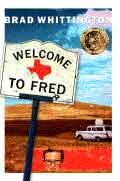Book Reviews
Posted: 10/27/06
Book Reviews
To Own a Dragon: Reflections on Growing Up Without a Father by Donald Miller & John MacMurray (NavPress)
It’s always fun to read a Don Miller book, and his latest is no exception. This time, the best-selling Blue Like Jazz author and college speaker teams up with his spiritual mentor, the international nature photographer John MacMurray.
Miller writes in his humorous and transparent style, poetically relating many of the experiences and lessons he missed growing up without an earthly father’s presence and training in life skills. While living with MacMurray’s family, Miller’s friend passed on spiritual insights that shaped his views of God and what it means to be a father.
 |
| What are you reading that other Texas Baptists would find helpful? Send suggestions and reviews to books@baptiststandard.com. |
Having lost my father, Reggie, to cancer earlier this year, my grief is fresh, and I wasn’t sure how the book would affect me. However, while reading, I developed an even deeper appreciation for the godly influence of my dad, also being grateful that God is my ever-present, ever-loving and perfect Father.
Even though this book is highly recommended for those, especially men, who were raised without fathers, I also recommend it to all who are learning to trust our Heavenly Father.
Greg Bowman, minister to students
First Baptist Church
Duncanville
Welcome to Fred by Brad Whittington (B&H Publishing Group)
 |
As a native of East Texas who pastored two churches within an hour’s drive from the town of Fred, my interest was peaked by a newspaper review of this Christy Award-winning novel.
Mark Cloud, a preacher’s kid, could be any teenager trying to find his place. Like most teens, he believes his destiny is to be found someplace other than where he presently finds himself. The faith of the father influences the son, but a series of events leads Mark to discover and embrace it as his own. The father is a wise man who not only allows his son to ask probing and even skeptical questions, but encourages them.
Whittington’s vivid depictions opened a floodgate of memories and laughter as I reflected upon some of the colorful characters who do, indeed, inhabit the woods of rural East Texas. But more than this, the author captures well the honest struggles of the individual seeking to understand the mysteries of the faith. It was a refreshing break from the formulaic, “easy believism” that seeks to put God in box so you can have your best life now pabulum that seems to dominate Christian publishing today. It’s unfortunate that such an honest and realistic depiction of the journey of faith has to be found in a fictional work.
The two sequels, Living With Fred and Escape From Fred, are a must to complete the journey.
Bobby Dagnel, pastor
First Baptist Church
Lubbock
 |
Driven by Eternity by John Bevere (FaithWords)
Driven by Eternity is an attempt to teach people to “keep sight of the goal that will allow readers to begin laboring for the rewards that endure—for eternity.”
Somehow John Bevere loses that focus and basically condemns to the lake of fire all who would disagree with his theology. His commentary on the Scripture is taken out of context and based on preconceived ideas. His authority to speak seems to come more from what he has heard others say instead of a solid study of the Bible. He quotes other authors and preachers as if they were of supreme authority even talking on occasion of friends who have gone to hell and come back to warn of its torments. His logic is bad, his grammar lacking and his scholarship poor. His attempt at allegory could be matched by any junior-high youth.
If the intention of his commentary is to challenge the reader intellectually, he fails. If his intention of his allegory is to motivate the reader emotionally, he fails.
Butch Strickland, pastor
Independence Baptist Church
Brenham
The Beloved Community: How Faith Shapes Social Justice, From the Civil Rights Movement to Today by Charles Marsh (Basic Books)
 |
As professor of religion at the University of Virginia and director of the Project on Lived Theology, Charles Marsh has demonstrated a unique ability to integrate history and theology with the practical application of the gospel. Marsh leads a fascinating journey through the Civil Rights Movement and the contributions of Martin Luther King Jr. and the African-American church to end segregation as social policy and establish the “Beloved Community,” a term coined by King to describe his vision of community.
Having grown up through this era, I found myself fascinated by the struggle for equality and burdened by the apathy (even antagonism) of “mainstream” churches and denominations for whom church was more about culture than lived faith.
Marsh concludes with current leaders such as John Perkins and his work in the Christian Community Development Association, providing living examples of how the church today is continuing the quest for the “Beloved Community.” This is a must read for church leaders who take community missions seriously and have a vision for community transformation.
Jim Young,
social justice specialist
Baptist General Convention of Texas
Dallas
News of religion, faith, missions, Bible study and Christian ministry among Texas Baptist churches, in the BGCT, the Southern Baptist Convention ( SBC ) and around the world.


